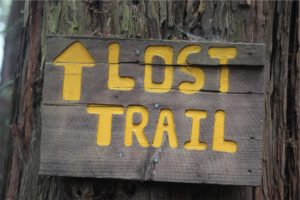‘The kingdom of heaven is like a merchant in search of fine pearls; on finding one pearl of great value, he went and sold all that he had and bought it. ‘Again, the kingdom of heaven is like a net that was thrown into the sea and caught fish of every kind; when it was full, they drew it ashore, sat down, and put the good into baskets but threw out the bad. So it will be at the end of the age. The angels will come out and separate the evil from the righteous and throw them into the furnace of fire, where there will be weeping and gnashing of teeth. ‘Have you understood all this?’ They answered, ‘Yes.’ And he said to them, ‘Therefore every scribe who has been trained for the kingdom of heaven is like the master of a household who brings out of his treasure what is new and what is old.’ (Matthew 13:45-52)
As a teacher, Jesus taught by telling stories from everyday life. There are three principles we can draw from Jesus’ story telling.
First, learn to read your life. The meaning of your life is to be found under the ground of your being, right now. Don’t live your life flitting forward and backward through time, or endlessly surfing toward the next thing. Presume there is deeper meaning in each passing moment. Jesus promises to be with us always. For that to work, to know Jesus’ real presence with us, we need to be really present to life now.
Being present to what is – what is right now – can be quite countercultural. There’s a real shadow side to our current cultural norm of multi-tasking, and the ability to be “virtually present” in more places than one. The risk is never to be present in one place at all, to be dislocated from the life unfolding in our midst.
Yet Jesus tells stories that ground his listeners in their own present moment. There’s a real “heads up” in this for those of us who are in times of training – students, let’s say – or times of transition, those of us anticipating some kind of life change. The real risk is to be living with our sights focused on the future instead of being grounded in the present. If you get ahead of yourself in life, it’s like cutting in line. Now matters. We need the present to prepare us for the prospect of the future. We actually need now. If we don’t find life now, life will always elude us. It’s only too possible to live your life as if the real deal is always in the future, just up ahead, when whatever it is now is done. And that’s a delusion. Life is now. For us to take in the promise of Jesus’ presence, we need to be really present to our life. Now.
 If you’ve been living your life at such a pace that you’ve forgotten what now even looks like, try being really present to something. Try doing one thing at a time. Start small; start now. Try this: try just drinking a cup of coffee. Don’t be on the phone; no iPod; no newspaper; no conversation; no crossword puzzle. Just drink coffee… Take in something in life, but be really present to that one thing. This has less to do with time than with intention. Or you might try being attentive to your breathing. Take two or three quiet minutes and fully notice your breathing. Or if you’re walking up the steps, take one step at a time. If you’re petting the dog, pet the dog. Do one thing at a time at least one time a day. And you may discover that your soul will catch on to being present to life – the pervasive present, which is where life and the meaning of life is to be found. Jesus promises to be really present to us. In the present. Now. Don’t miss a moment of it.
If you’ve been living your life at such a pace that you’ve forgotten what now even looks like, try being really present to something. Try doing one thing at a time. Start small; start now. Try this: try just drinking a cup of coffee. Don’t be on the phone; no iPod; no newspaper; no conversation; no crossword puzzle. Just drink coffee… Take in something in life, but be really present to that one thing. This has less to do with time than with intention. Or you might try being attentive to your breathing. Take two or three quiet minutes and fully notice your breathing. Or if you’re walking up the steps, take one step at a time. If you’re petting the dog, pet the dog. Do one thing at a time at least one time a day. And you may discover that your soul will catch on to being present to life – the pervasive present, which is where life and the meaning of life is to be found. Jesus promises to be really present to us. In the present. Now. Don’t miss a moment of it.
Secondly, Jesus speaks an authentic word to his listeners. To the farmers, he tells the story of a sower who goes out to sow seed on the farmland. In the vineyards he draws the analogy between the vine and the branches: “I am the vine,” he says, “and you are the branches.” To those in the fishing trade, he uses the metaphor of casting a wide net. To the poor widows he speaks of desperately searching for a lost coin. To parents he speaks of two wayward children – one son lost in lust, one lost in envy – and how these sons are found. He draws an analogy about faithfulness from blooming flowers – “Consider the lilies of the field” – and from watching the free flight of the birds in the air, he reminds us not to be anxious. Jesus tells so many stories from real life to impress his point.
Now on the one hand, we could see Jesus like an astute politician on the campaign trail, speaking to the audience at hand. Whether a politician is speaking to the union membership, or to a social justice organization, or to Greenpeace, an astute politician will know the vocabulary, values, and needs of the crowd. And so it is with Jesus. But there’s also something deeper going on here. I think these are Jesus’ stories. I mean that I don’t think the stories he tells simply come out of the lives of his listeners. They are his own stories – about his discovering his own identity, and vocation, and the real presence of the God whom he calls “Father.” The stories Jesus tells come out of his own life, which he shares with those who have ears to listen.
 Jesus’ identity wasn’t handed to him any more than ours has been handed to us. It takes a lot of work to find your way in life (don’t we know). And so when Jesus finally finds his voice and claims his calling, when he says, “I am the way, and the truth, and the life,” he hasn’t come to this easily or automatically. A recurring theme in his stories is about being lost – lost coins, lost sheep, lost children, lost treasures – because Jesus’ own identity was something lost on him for a good share of his life. He knew what it was to be lost at times in his own life – even up until his last moments, crying out on the cross – and in this there is a real word of hope for us. The moral of Jesus’ stories about being lost is always that you don’t have to find yourself. God seeks you out and finds you – which is what I think Jesus found out (personally) and which he promises to us.
Jesus’ identity wasn’t handed to him any more than ours has been handed to us. It takes a lot of work to find your way in life (don’t we know). And so when Jesus finally finds his voice and claims his calling, when he says, “I am the way, and the truth, and the life,” he hasn’t come to this easily or automatically. A recurring theme in his stories is about being lost – lost coins, lost sheep, lost children, lost treasures – because Jesus’ own identity was something lost on him for a good share of his life. He knew what it was to be lost at times in his own life – even up until his last moments, crying out on the cross – and in this there is a real word of hope for us. The moral of Jesus’ stories about being lost is always that you don’t have to find yourself. God seeks you out and finds you – which is what I think Jesus found out (personally) and which he promises to us.
The fourth-century Archbishop of Constantinople, Gregory of Nazianzus (c. 329-389/390), said of Jesus, “He cannot save what he did not assume.”i Jesus cannot save in you – that part of your life, your humanity, your identity, your past, your present, your temptations, your hopes, your fears – what he himself did not know in his own life. Jesus cannot save what he did not assume. So I assume that Jesus had as real a life, and as complicated a life, and as blessed a life as you do – or he cannot be your Savior. Jesus says he has come “to seek and to save the lost,” so he will have to know where to come looking for us. ii And he can find us, lost as we are prone to be, because he knows where to look – because he’s been there.iii
Lastly, a principle we encounter in Jesus’s quite poignant story about a pearl: “The kingdom of heaven is like a merchant in search of fine pearls; on finding one pearl of great value, he went and sold all that he had and bought it.” This is one of Jesus’ stories which he shares with us thinking this may also be our story – your story. What is the lost pearl that is searched for by the merchant? Or rather, who is the pearl? You are that pearl!
Do you know about pearls, where they come from? A pearl comes from the most unsuspecting of creatures: a mollusk. Pearls come from an irritation, a sandy wound in an inner membrane of a mollusk, hidden in darkness on the bottom of the sea. A pearl forms around that wound. I suspect the beauty of a pearl is lost on the mollusk. A pearl’s beauty is only discovered when it is found. This, I think, was Jesus’ discovery in his own life when he found his own identity.
 He shares the story about the pearl with us, thinking it is our story also. This is your story: how Jesus finds you; what Jesus sees in you; why Jesus loves you so dearly.
He shares the story about the pearl with us, thinking it is our story also. This is your story: how Jesus finds you; what Jesus sees in you; why Jesus loves you so dearly.
A thousand years ago, Saint Symeon, a great Russian saint, spoke of the miracle of being found and being found out by Jesus. Symeon writes: “…[Jesus] makes us utterly real, and everything that is hurt, everything that seemed to us dark, harsh, shameful, maimed, ugly, irreparably damaged, is in Him transformed and recognized as whole, as lovely, and radiant in His light…” iv
Jesus is with us, with you, now – really present in your presence, now. And Jesus is real. He has come to find you, and to love you into being real, into being who you were created to be. Beautiful you.
____________________________
i Gregory of Nazianzus (c. 329-389 or 390).
ii Luke 19:10.
iii Hebrews 2:17-18; 4:14-16.
iv Saint Symeon (c. 949-1022), the New Theologian, writes: “We awaken in Christ’s body as Christ awakens our bodies, and my poor hand is Christ; He enters my foot, and is infinitely me. I move my hand, and wonderfully my hand becomes Christ, becomes all of Him (for God is indivisibly whole, seamless in His Godhood). I move my foot, and at once He appears like a flash of lightning. Do my words seem blasphemous? Then open your heart to Him and let yourself receive the one who is opening to you so deeply. For if we genuinely love Him, we wake up inside Christ’s body where all our body, all over, every most hidden part of it, is realized in joy as Him, and He makes us, utterly, real, and everything that is hurt, everything that seemed to us dark, harsh, shameful, maimed, ugly, irreparably damaged, is in Him transformed and recognized as whole, as lovely, and radiant in His light. We awaken as the Beloved in every last part of our body.”








“First, learn to read your life. The meaning of your life is to be found under the ground of your being, right now.” Thank you, Br Curtis. Words to ponder.